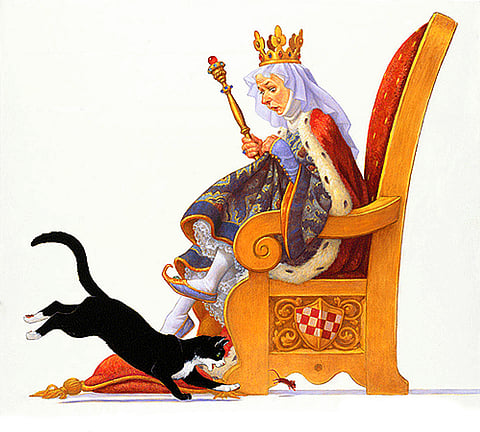
- Home
- न्यूजग्राम
- NewsGram USA
- India
- World
- Politics
- Entertainment
- Culture
- Lifestyle
- Economy
- Sports
- Sp. Coverage
- Misc.
- NewsGram Exclusive
- Jobs / Internships

By Prachi Mishra
"We must at present do our best to form a class, who may be interpreters between us and the millions whom we govern; a class of persons, Indians in blood and color, but English in taste, in opinions, in morals and in intellect." – Lord Macaulay
In 1853, Lord Macaulay introduced an anglicized education system in India. In various educational institutes, all over the country, students were taught English texts, right from the childhood.
Even after India's genesis as an independent nation, a British dyed school system was adopted where the children's poems had the "pussy cat" visiting London to meet the Queen instead of meeting some mighty King in India. This anglicized form of education continues even today, where toddlers are exposed to western rhymes, remaining unaware about the Indian literary works.
At a tender age when children evolve, learn to speak and become aware of the ways of the world, instead of being inculcated with the rich history and culture of India, they are influenced by the Western world. At the initial years of learning in which the children gain an understanding of their culture, they are exposed to a foreign culture. Most importantly, the children can't really relate to these poems set in the western world.
It's not erroneous to make children learn the English nursery rhymes as they become aware of a new culture and it bridges the gap between the East and the West. These rhymes have an underlying historic and cultural significance which makes the children more aware.
However, the problem ensues when the Western influence dominates over the Indian. Today most of the children in India know that "Humpty Dumpty" refers to a canon nicknamed "Humpty Dumpty", stationed during the English Civil War in 1648 that tumbled to the ground. Dozens of men who tried to lift it back, could not do so, given the size and weight of the cannon.
But what about Indian history and culture? If you take a glimpse at any nursery rhyme book, only one or two poems by Indian poets will be mentioned in the book.
Isn't it a setback to the Indian learning system, that right from the beginning the children are inculcated more with the unfamiliar Western culture? In a diverse land like India which has produced legendary writers and poets like Rabindranath Tagore, Sarojini Naidu, Sri Aurobindo, Vikram Seth etc., isn't it appalling that only a few rhymes have made their way in children's books?
In 2006, the Madhya Pradesh government had banned the teaching of English nursery rhymes in primary schools. The state education minister at that time, Narrotam Mishra was quoted as saying, "There is no need for English rhymes when there are Indian rhymes to infuse patriotism in children" adding, "We want our children to have value education in local colour".
It's about to time to examine how Indian literary works can find their way in the current primary education system. It's not necessary that the children would be educated more effectively, if catered only with the English pieces of works right from the childhood. Exposure to the Indian literary works is of utmost importance.
